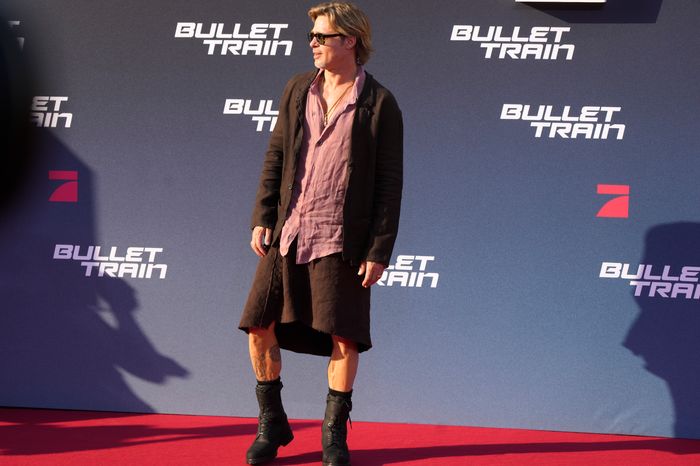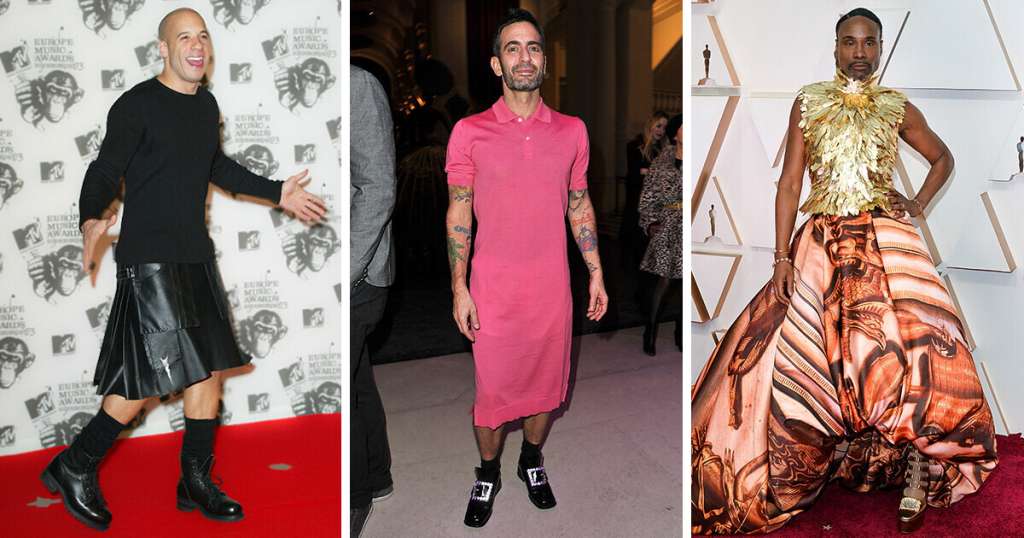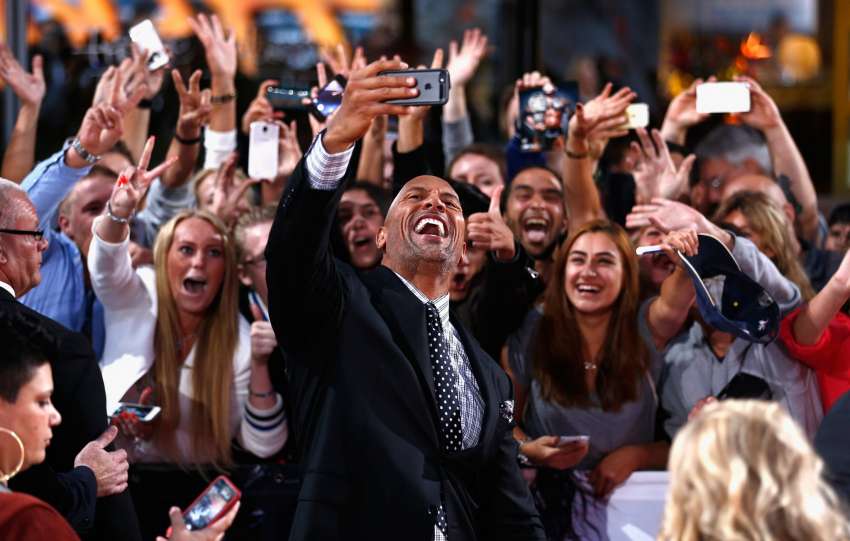Adoption of feminine attire by male celebrities:
The trend of dressing masculine-looking men in women’s attire, from Hollywood to the NBA, has sparked significant debate and scrutiny. The adoption of feminine attire by male celebrities is often seen as part of a broader cultural shift towards greater acceptance and celebration of gender diversity. It raises questions about the erosion of traditional gender norms and the influence of popular culture on societal perceptions. Moreover, the state of the Christian music scene becomes a focal point of inquiry, serving as a reflection of broader American Christian culture and its reception abroad.
Non-traditional gender expressions:
Many believe men wearing dresses in Hollywood aims to indoctrinate and desensitize individuals, especially youth, to accept non-traditional gender expressions. This phenomenon, critics argue, serves to undermine traditional masculinity and promote a distorted understanding of gender identity.

Adopting feminine attire:
From renowned actors like Brad Pitt and Jamie Foxx to musicians such as Usher and Lil Nas X, the list of prominent figures seen wearing women’s clothing continues to grow. The sight of these influential individuals adopting feminine attire has led to concerns about the normalization of such behavior and its potential impact on impressionable minds.
In particular, the recent controversy surrounding Lil Nas X, who appeared in a music video portraying himself as pregnant, has ignited heated discussions about the boundaries of artistic expression and the influence of popular culture on societal values. The imagery depicted in the video, including provocative scenes involving satanic symbolism, has raised eyebrows and sparked condemnation from various quarters.
Fashion statement:
The adoption of feminine attire by male celebrities it’s important to recognize that the phenomenon of men wearing women’s clothing is not merely a fashion statement but often carries deeper symbolic significance. Some view it as a deliberate act of defiance against societal norms and religious beliefs, especially those rooted in Christian doctrine.
The practice of men wearing women’s clothing is explicitly condemned in the Bible, with verses such as Deuteronomy 22:5 stating, “A woman must not wear men’s clothing, nor a man wear women’s clothing, for the Lord your God detests anyone who does this.” For many Christians, this biblical injunction serves as a guiding principle in matters of gender identity and expression.
Normalization:
The normalization of such behavior, particularly among influential figures in the entertainment industry, can have far-reaching consequences, particularly for impressionable young people. Exposure to images and messages that challenge traditional gender roles can contribute to confusion and identity struggles among adolescents and young adults.

While proponents argue that such representation fosters inclusivity and tolerance, critics caution against the erosion of traditional values and the promotion of ideologies contrary to Christian beliefs.
Conclusion:
The phenomenon of men wearing women’s clothing in popular culture raises important questions about societal values and the influence of media on individual behavior. While it’s essential to acknowledge the diversity of human expression, particularly in matters of gender identity, it’s equally important to uphold biblical principles and traditional values. By promoting respect for diverse perspectives while staying grounded in faith and moral integrity, we can navigate the complexities of modern culture with wisdom and discernment. Let us strive to cultivate a society that embraces true diversity while remaining steadfast in our commitment to righteousness and truth.






